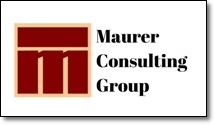
What are business support pillars? Never heard of them? Sounds like it’s time for some education into the most important and basic of business elements. I’m referring to Pillars – Critical Business Support Pillars. Pillars provide not only support for the company, but allow a strong, stable small business to be built using these support elements. Just like when a home or public building is planned, a strong support structure needs to come first. Pillars provide support and strength to hold the building up. Pull one out and your structure is in danger of collapsing. The same can happen if you don’t build your small business on a strong structural system of pillars.
How many Business Support Pillars Are Needed for Success?
Three, four, five, six or even ten –Business Support Pillars seem to be talked and written about on a regular basis. It seems that most of the longer lists don’t really represent basic structural pillars that support a successful business. Those who seem to think there are endless numbers of necessary pillars really over reach ‘critical’ into areas like a company’s core values and culture. They take elements of pillars of strength that support a successful small business and deem them to be yet another ‘pillar’. In reality, they are more like bricks or stones that are parts of a necessary pillar of strength and support.
Many believe that there are three key pillars that make a business successful. Others believe there are four, and for others, five is the magic number. Regardless of the number of pillars, it is interesting to find that most of the lists include totally different elements and concepts, not just the basic three or four with additional elements added to the longer lists. Do all of those ‘pillars’ on long lists provide the kind of mandatory support you need for success? For everyone, the answer is probably “not really.”
The Bare Minimum Business Success Pillars
Personally, I’ve settled on four or five pillars that are crucial to any successful small business. The Four Pillars of a Successful Business that I easily buy into are:
- Planning
- People
- Product
- Process
The Fifth Business Structure Pillar that I can also accept with open arms is Profit. If all of the other four aren’t incorporated, engaged and focused on making a profit, success for the small business does not exist. Survival and success are not the same. Working long hours over and over for years, never realizing a reasonable level of profit is not success. At best, you might call that survival, or pure stubbornness. The idea behind starting a business is to make money, not lose it. And, it is intended that the business will make profits at a level that supports the business itself, pays any employees, and covers costs of producing and selling your product.
Further, and most importantly, profits need to earn a comfortable living wage for the entrepreneur(s). It is the entrepreneur who takes the risks and does the work to get the business off to a steady and stable start. If the return on investment (ROI) for all of their efforts falls somewhere in the range of minimum wages, they are surviving, not achieving success.
Four Critical Support Pillars for Small Business Success
Let’s address each of the four basic pillars of small business success. If you understand each on better, you can use them better to support the business you want to build to success.
Planning
It is no surprise that I place planning before the other three critical pillars of small business success. Without a plan, you begin your business building journey with no focus and no direction. With no focus or direction, you wander around aimlessly, moving into or changing direction at the drop of a hat. A clearly focused path from A to B to C to D…. all the way to Success shows you the way you need to go from beginning to end. Is it cast in concrete with no flexibility? Of course it’s not.
A well thought out plan simply keeps you focused and on track. Should a wonderful opportunity arise at some point, you can consider how it fits – or doesn’t fit – with your chartered route to success. Consider those opportunities or just put them on a list of potential changes at some point in the future. Do they fit with your selected direction or take you too far in another endless direction?
People
There are several categories of People you will need to address as a small business owner. People to work with you in developing your product or service, marketing it, selling or even creating it will be your paid employees. Hire the best you can find, not the cheapest. Look for loyalty and the likelihood of longevity.
Another group of people important to your success will be vendors and suppliers. You need each other, so select the best, most helpful companies and representatives available. Ask a lot of questions when you first meet about how they can help you and how you can help them. What services will be important to you and your company, not necessarily to the entire industry. Find a good fit.
And then, there is that very important group of people – paying customers – who are critical to any successful small business. Identify those who will be your ideal customers. Not everyone will be your customer, much less a good customer. Ideal customers are the ones who see the value you offer, so they will buy. Their buying creates revenue and cash flow for your firm. If you price our product(s) and services correctly, they will also be responsible for your firm’s profit levels.
Product
To be in business and make money, you need something to offer customers that they will see value in and be willing to pay a fair and reasonable price. Just because a small business owner wants to sell something does not mean that will happen. Quite a few small businesses fail when their ‘great’ ideas aren’t all that great to consumers.
Many factors figure in to deciding what product (and yes, that includes services) you want to sell. Are you in a highly competitive area for your particular product? Is your product/service different, and ideally better, than what competitors are offering? If customers aren’t interested in your product or competitors are making and selling their version at rock bottom pricing, should you jump into a highly competitive pit of vipers? Just because you have certain skills or products you want to sell does not mean that customers will automatically want to buy them. There is a lot that goes into determining what you will offer, who will want it, and how much, if any value prospects will see in your product.
Process
Many small business firms launch their company, start making and selling their products only to hit a wall soon after they begin. Why? Many fail to understand the necessity of Process in the ability to grow a company. The typical solo-preneur starts off doing what they can within the time limitations available to them. What they do and are passionate about is usually the basis for them starting their own business.
But, what a small business owner does and is passionate about are, in reality, pretty small parts of owning and running a small business. Daily routines include tasks like ordering materials, creating the product, paying bills, sending client invoices, packaging their product for distribution, fielding sales calls from outside firms – and don’t forget all those annoying robo-callers. The list goes on and on, filling up much of the available time during the work day. Any creative ideas or innovation needed to make the best product – the one you love and are passionate about – and sell it to customers goes by the wayside pretty quickly.
This is where Process comes into play. The sooner you automate and standardize each process that makes your company run smoothly and efficiently, the better. Automation and standardization are what let your company grow. Everyone that is added to your staff as the business grows, learns to do each step in their job the same way. You have determined what the best and fastest processes are from day to day experience. What can be cut out? How can the process be fine tuned, eliminating unnecessary steps that slow things down? For more on systems and processes, click here.
Implementing Critical Business Support Pillars
Without these basic Business Support Pillars in place, your chances of growing your small business to the level of success you envisioned are not very good. Just like a home or public building, before you can build something of value, you need to have a solid foundation at the base. From that foundation, you add structural columns, or pillars, to hold up what you are creating.
John C. Maxwell, American Author, Speaker and pastor known for his excellent books on leadership once said:
“The whole idea of motivation is a trap; forget motivation, just do it.”
But, how do you go about getting these important support structures in place for your business? How many times have you heard someone toss off a casual ‘Just do it?’ Do you stall or ignore them because you can’t get motivated to begin? Well, that is pretty much what you need to do. Place one foot in front of the other, step by step.
Start with a Plan; it’s the ideal starting point. Look to the end – where you want to go and what you want to achieve. Add in the steps or phases it will strategically take you to get to that pinnacle you see as Success. Include tasks and challenges that can be dealt with along your journey and the support system (The Support Pillars) you need to keep you from failure as you move forward.






